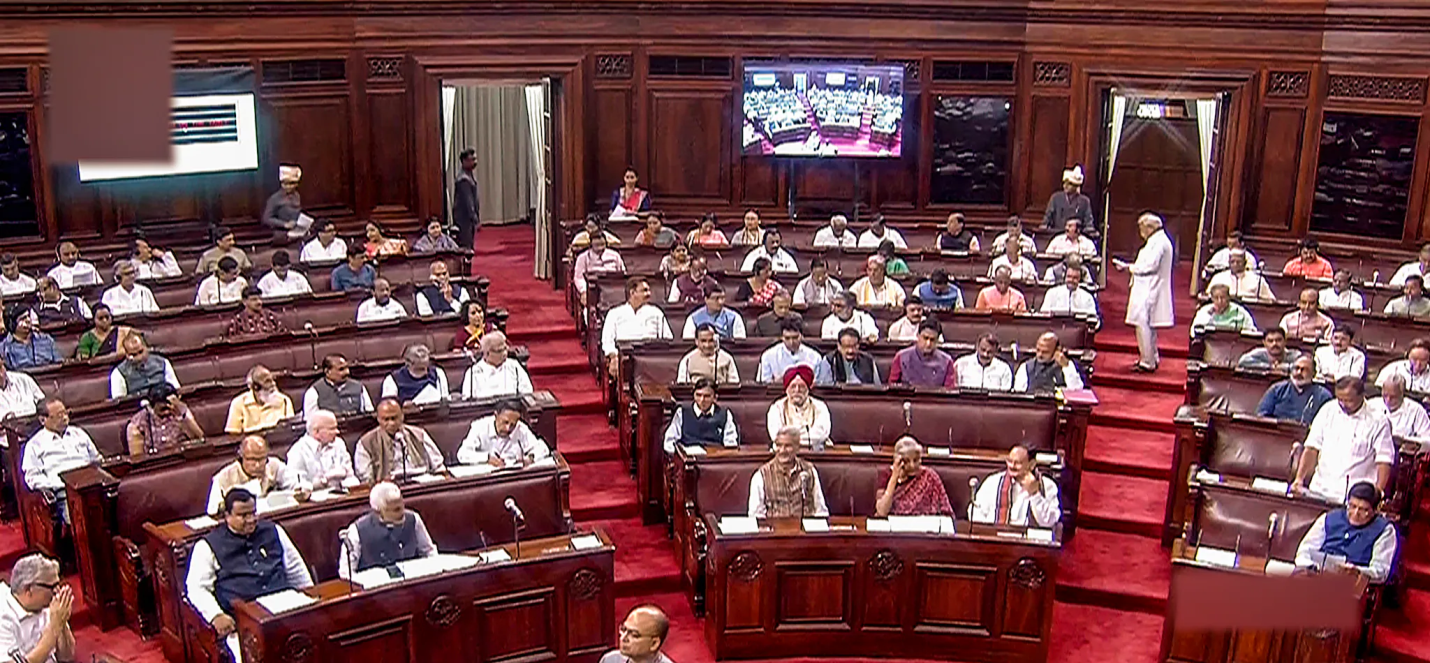Description

Copyright infringement not intended
Context: Some Portions of the speech delivered in Lok Sabha have been expunged or removed from the Parliament records by the orders of the Speaker.
Details
- Expunging is the process of removing or deleting any words or expressions used in a debate that is considered defamatory, indecent, unparliamentary, or undignified from the official record of Parliament.
- The power to expunge lies with the Presiding Officer of the House, i.e., the Speaker of Lok Sabha or the Chairperson of Rajya Sabha. The decision to expunge is based on the context and the intention of the speaker and is intended to maintain the decorum and dignity of the House.

Expunging
About
- Expunging is the removal of remarks that are considered defamatory, indecent, unparliamentary, or undignified from the official records of the Parliament. It is a routine procedure that happens in most parliamentary democracies, including India. The purpose of expunging is to prevent the misuse of freedom of speech guaranteed within the Parliament.
- Freedom of speech is a vital privilege for members of Parliament (MPs), as it allows them to express their views and opinions without fear of legal consequences. However, this privilege comes with certain responsibilities and limitations, as MPs are expected to adhere to parliamentary rules and etiquette.
Article 105(2) of the Indian Constitution
- The constitutional basis for expunging lies in Article 105(2) of the Indian Constitution, which grants MPs immunity from legal proceedings in courts for statements made within Parliament. This means that MPs cannot be sued or prosecuted for what they say in the House, even if their words are defamatory or offensive to someone outside the Parliament. However, this does not mean that MPs can say whatever they want without any consequences. They are still subject to parliamentary rules, decorum, and the control of the Speaker.
Rules 380 and 381 of the Rules of Procedure and Conduct of Business in Lok Sabha
- The rules governing expunging are laid down in Rules 380 and 381 of the Rules of Procedure and Conduct of Business in Lok Sabha (the lower house of Parliament). According to these rules, if the Speaker deems certain words or usage to be inappropriate for parliamentary discourse, those words can be expunged from the records.
- The Speaker can also direct MPs to withdraw their remarks or apologize for them. The decision to expunge is made by the Speaker based on recommendations from the reporting section, which is a team of officials who prepare the verbatim transcripts of parliamentary proceedings.
- The Speaker holds the discretion to expunge and can also restore expunged remarks. The Speaker's authority is supreme in these matters and cannot be challenged or questioned by anyone. The Speaker can also expunge remarks made by ministers, opposition leaders, or even the Prime Minister. Once a word or usage is expunged, it is removed from the records and marked with an explanatory footnote. The expunged portions are not published in any official document or website and are not accessible to anyone.
Conclusion
- Expunging is a complex and controversial practice that has both advantages and disadvantages. It aims to balance the freedom of speech and expression of MPs with the dignity and decorum of the Parliament. However, it also raises questions about transparency, accountability, and public access to parliamentary information. In the digital age, where information can be easily shared and accessed online, expunging faces new challenges and dilemmas that require careful consideration and deliberation.
Must Read Articles:
EXPUNGED PORTIONS OF THE PROCEEDINGS: https://www.iasgyan.in/daily-current-affairs/expunged-portions-of-the-proceedings#:~:text=Rule%20380%20(%E2%80%9CExpunction%E2%80%9D),proceedings%20of%20the%20House%20records.
|
PRACTICE QUESTION
Q. Explain the concept of parliamentary democracy, elucidating its significance in democratic governance. Delve into the challenges that parliamentary democracies face in today's complex socio-political landscape and propose strategies that could enhance its functionality and responsiveness in modern societies.
|

https://indianexpress.com/article/explained/explained-politics/expunge-parliament-how-the-process-works-8884449/










